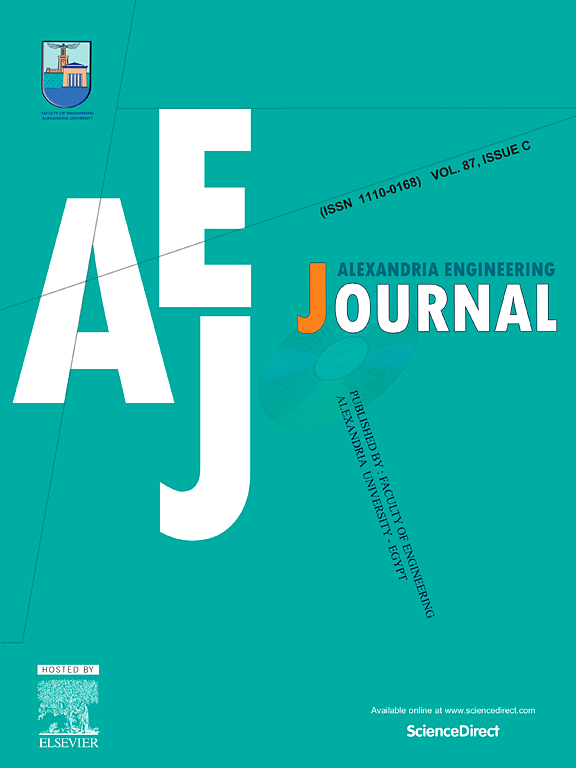EDCEW-LLM: Error detection and correction in English writing: A large language model-based approach
IF 6.8
2区 工程技术
Q1 ENGINEERING, MULTIDISCIPLINARY
引用次数: 0
Abstract
This study investigates the use of large language models (LLMs) for error detection and correction in English writing (EDCEW), focusing on the challenges of overcorrection and pedagogical feedback. We explore the relationship between targeted prompting strategies, transformer model architectures, and the error profiles of English language learners across CEFR proficiency levels (A, B, and C). We evaluated LLM through zero-shot, few-shot and fine-tuning approaches, showing that overcorrection is more common in texts from advanced learners, while lower proficiency levels show unique patterns of errors. To address this issue, we introduce a two-stage pipeline: first, a fine-tuned LLM leverages sequence-to-sequence modeling to perform precise token-level error detection and correction, achieving competitive F1 scores across multilingual datasets (English, German, Chinese); second, a prompted LLM (GPT 3.5) generates rule-based, natural language explanations for each identified error, enhancing the educational values. We present comprehensive benchmark results on standard WEDC datasets (BEA-2019, JFLEG), supported by human evaluations, that show the effectiveness of the proposed approach in producing accurate corrections and linguistically informative error explanations. The proposed model improves correction accuracy and facilitates deeper linguistic comprehension through explicit, pedagogically sound feedback, addressing a significant limitation of existing automated GEC tools. Moreover, this research advances LLM-driven WEDC by providing a robust framework that balances correction precision with pedagogical utility. Qualitative results further highlight the model’s ability to address diverse error types, such as Subject+Verb agreement, redundant comparisons, and incorrect preposition usage, with contextually appropriate corrections.
英语写作中的错误检测与纠正:基于大语言模型的方法
本研究探讨了在英语写作(EDCEW)中使用大型语言模型(llm)进行错误检测和纠正,重点关注过度纠正和教学反馈的挑战。我们探讨了不同CEFR熟练程度(A、B和C)的英语学习者的目标提示策略、转换模型架构和错误概况之间的关系。我们通过零试、少试和微调方法对法学硕士进行了评估,结果表明,在高级学习者的文本中,过度纠正更为常见,而较低水平的学习者则表现出独特的错误模式。为了解决这个问题,我们引入了一个两阶段的流水线:首先,一个微调的LLM利用序列到序列建模来执行精确的标记级错误检测和纠正,在多语言数据集(英语、德语、中文)中获得有竞争力的F1分数;第二,提示法学硕士(GPT 3.5)为每个识别出的错误生成基于规则的自然语言解释,增强了教育价值。我们在标准WEDC数据集(BEA-2019, JFLEG)上提供了全面的基准测试结果,并得到了人工评估的支持,证明了所提出的方法在产生准确的更正和语言信息错误解释方面的有效性。提出的模型提高了纠错精度,并通过明确的、教学上合理的反馈促进了更深层次的语言理解,解决了现有自动化GEC工具的重大限制。此外,本研究通过提供平衡校正精度和教学效用的强大框架,推进了llm驱动的WEDC。定性结果进一步强调了模型处理各种错误类型的能力,例如主语+动词一致、冗余比较和不正确的介词使用,并根据上下文进行适当的纠正。
本文章由计算机程序翻译,如有差异,请以英文原文为准。
求助全文
约1分钟内获得全文
求助全文
来源期刊

alexandria engineering journal
Engineering-General Engineering
CiteScore
11.20
自引率
4.40%
发文量
1015
审稿时长
43 days
期刊介绍:
Alexandria Engineering Journal is an international journal devoted to publishing high quality papers in the field of engineering and applied science. Alexandria Engineering Journal is cited in the Engineering Information Services (EIS) and the Chemical Abstracts (CA). The papers published in Alexandria Engineering Journal are grouped into five sections, according to the following classification:
• Mechanical, Production, Marine and Textile Engineering
• Electrical Engineering, Computer Science and Nuclear Engineering
• Civil and Architecture Engineering
• Chemical Engineering and Applied Sciences
• Environmental Engineering
 求助内容:
求助内容: 应助结果提醒方式:
应助结果提醒方式:


